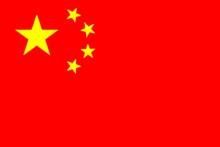Country Partner
China partners
Flag

China
Pooled funding and or SWAP
No SWAp
UNDAF rollout cycles
2011-2015
PEPFAR focus countries
Yes
World Bank
The Country Assistance Strategy (CAS) for China is the first since it ceased borrowing on concessional terms from the International Development Association (IDA) and the country is now in a very different context from that of the previous 1997 CAS. In particular this CAS coincides with a shift in China's reforms: from the liberalization phase to the more difficult structural and institution building phase; a dynamic growth in the private sector; and a continuing need though reduced for availability of concessional external financing. Since 1997 China has managed macroeconomic conditions well with a sustained growth but the medium-term financial position needs to be strengthened. Moreover the pace of policy and institutional reform accelerated in the mid-1990s magnifying difficulties while improving longer-term prospects and yet despite substantial progress on poverty reduction over the last decade poverty remains a predominantly rural issue although urban poverty is a growing concern. The Bank's assistance strategy is designed to help China: a) improve the business environment and help accelerate the transition to a market economy mostly through an array of knowledge transfer activities; b) address the needs of the poorer disadvantaged people and lagging regions through investment lending in rural development infrastructure and social sectors; and c) facilitate an environmentally sustainable development process through investment lending in natural resource management watershed rehabilitation and wastewater treatment in addition to energy and global environment projects. The International Finance Corporation's strategic priorities for this CAS period include: targeted technical assistance to improve financial markets private participation in infrastructure and small and medium scale enterprises which includes capacity building and support to private banking and financial institutions
European Commission
China has moved from being a traditional recipient of overseas development assistance to the position of a strategic partner with whom the EU engages on a wide range of policy issues. Increasingly, the country is an important source of aid for other developing countries.Country Strategy paper 2007-2013: three areas for cooperation-Support for areas covered by EU-China policy dialogues including bilateral relationship in trade business exchanges socio economic development and support for the internal reform process Global concerns over climate change the environment and energy Human resources development
Health Metrics Network Wave 1
No